Xiaolong Tu
GreenAuto: An Automated Platform for Sustainable AI Model Design on Edge Devices
Jan 25, 2025
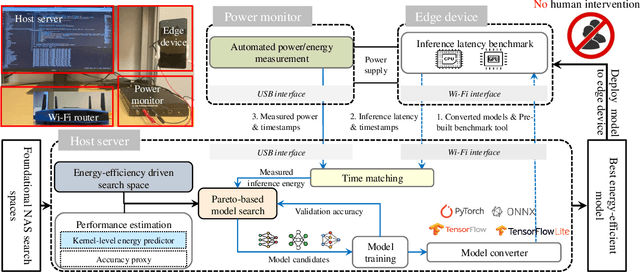
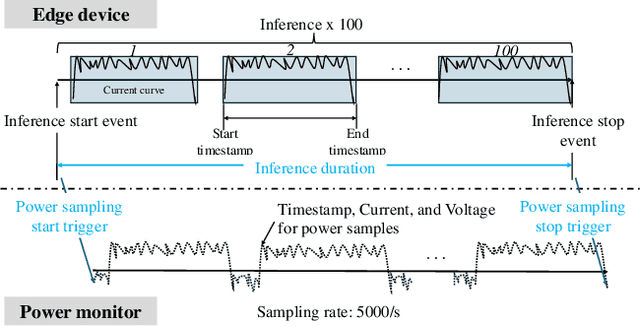

Abstract:We present GreenAuto, an end-to-end automated platform designed for sustainable AI model exploration, generation, deployment, and evaluation. GreenAuto employs a Pareto front-based search method within an expanded neural architecture search (NAS) space, guided by gradient descent to optimize model exploration. Pre-trained kernel-level energy predictors estimate energy consumption across all models, providing a global view that directs the search toward more sustainable solutions. By automating performance measurements and iteratively refining the search process, GreenAuto demonstrates the efficient identification of sustainable AI models without the need for human intervention.
DeepEn2023: Energy Datasets for Edge Artificial Intelligence
Nov 30, 2023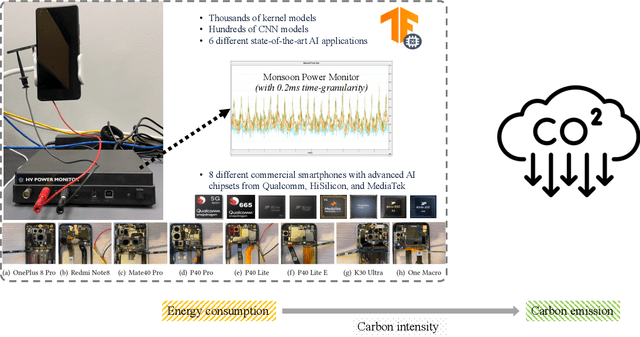

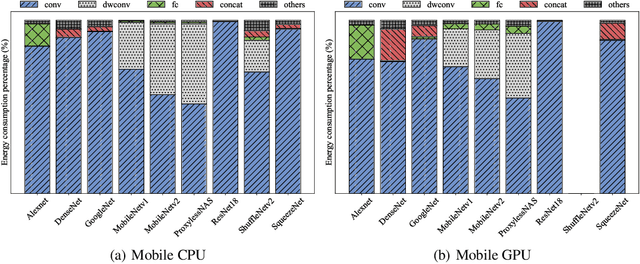

Abstract:Climate change poses one of the most significant challenges to humanity. As a result of these climatic changes, the frequency of weather, climate, and water-related disasters has multiplied fivefold over the past 50 years, resulting in over 2 million deaths and losses exceeding $3.64 trillion USD. Leveraging AI-powered technologies for sustainable development and combating climate change is a promising avenue. Numerous significant publications are dedicated to using AI to improve renewable energy forecasting, enhance waste management, and monitor environmental changes in real time. However, very few research studies focus on making AI itself environmentally sustainable. This oversight regarding the sustainability of AI within the field might be attributed to a mindset gap and the absence of comprehensive energy datasets. In addition, with the ubiquity of edge AI systems and applications, especially on-device learning, there is a pressing need to measure, analyze, and optimize their environmental sustainability, such as energy efficiency. To this end, in this paper, we propose large-scale energy datasets for edge AI, named DeepEn2023, covering a wide range of kernels, state-of-the-art deep neural network models, and popular edge AI applications. We anticipate that DeepEn2023 will improve transparency in sustainability in on-device deep learning across a range of edge AI systems and applications. For more information, including access to the dataset and code, please visit https://amai-gsu.github.io/DeepEn2023.
Unveiling Energy Efficiency in Deep Learning: Measurement, Prediction, and Scoring across Edge Devices
Oct 19, 2023


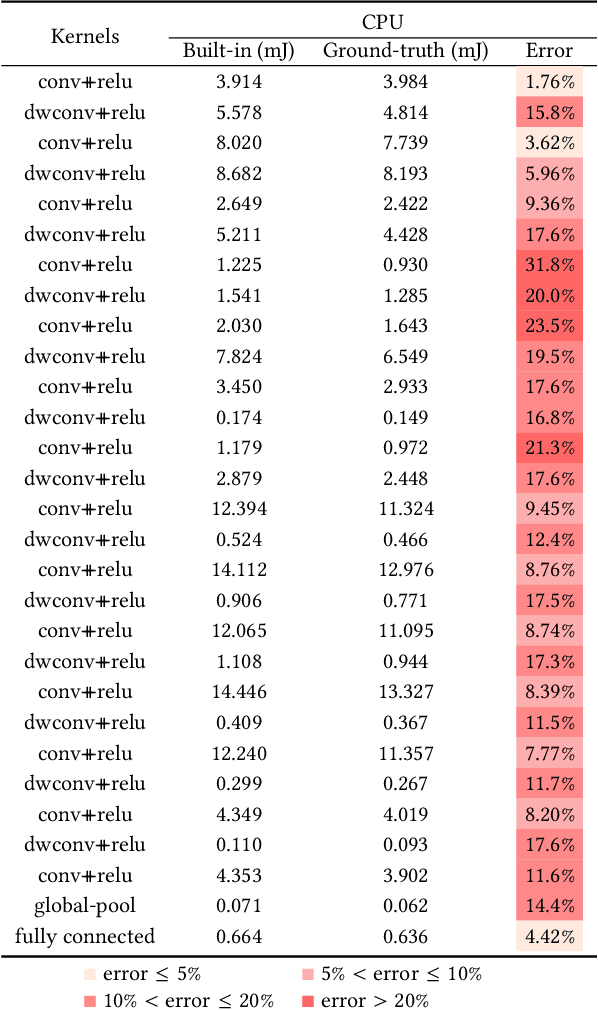
Abstract:Today, deep learning optimization is primarily driven by research focused on achieving high inference accuracy and reducing latency. However, the energy efficiency aspect is often overlooked, possibly due to a lack of sustainability mindset in the field and the absence of a holistic energy dataset. In this paper, we conduct a threefold study, including energy measurement, prediction, and efficiency scoring, with an objective to foster transparency in power and energy consumption within deep learning across various edge devices. Firstly, we present a detailed, first-of-its-kind measurement study that uncovers the energy consumption characteristics of on-device deep learning. This study results in the creation of three extensive energy datasets for edge devices, covering a wide range of kernels, state-of-the-art DNN models, and popular AI applications. Secondly, we design and implement the first kernel-level energy predictors for edge devices based on our kernel-level energy dataset. Evaluation results demonstrate the ability of our predictors to provide consistent and accurate energy estimations on unseen DNN models. Lastly, we introduce two scoring metrics, PCS and IECS, developed to convert complex power and energy consumption data of an edge device into an easily understandable manner for edge device end-users. We hope our work can help shift the mindset of both end-users and the research community towards sustainability in edge computing, a principle that drives our research. Find data, code, and more up-to-date information at https://amai-gsu.github.io/DeepEn2023.
 Add to Chrome
Add to Chrome Add to Firefox
Add to Firefox Add to Edge
Add to Edge